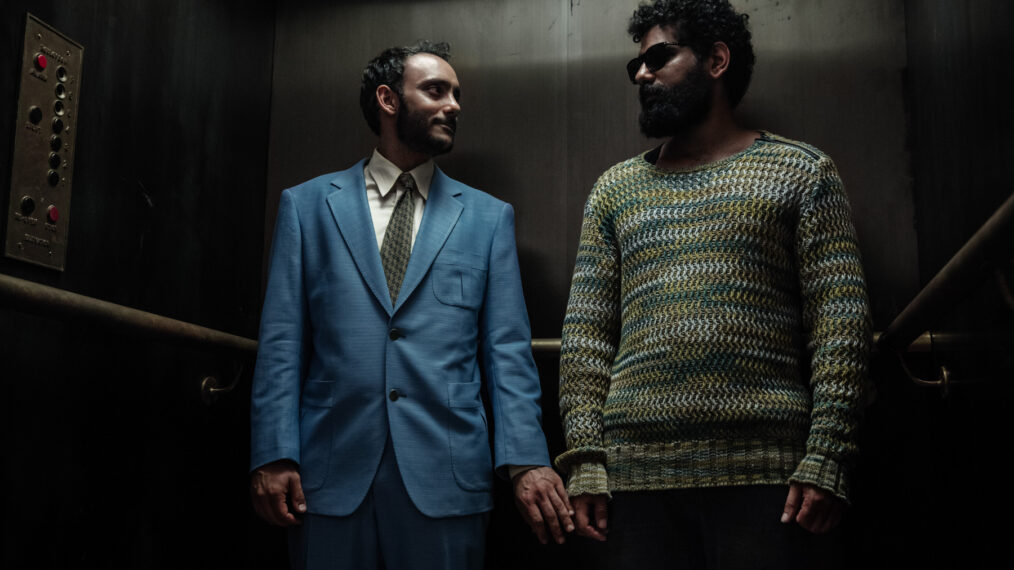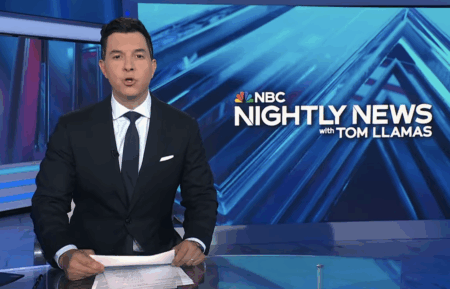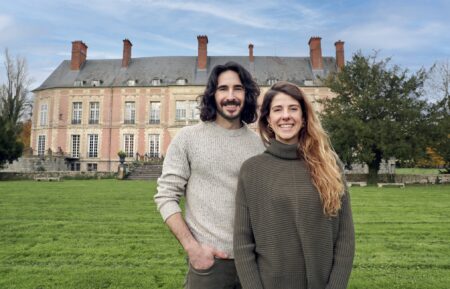Meet ‘American Gods’ Anubis and the Jinn

The only old god Shadow gets to meet in episode 3 of American Gods is the rumored third Zorya sister, Zorya Polunochnaya. She tells him stories of terror bears in the sky and gives him the moon in return for a kiss that she describes as “disgusting, but in a nice way, like bleu cheese or brandy.” Meanwhile, two other deities get up to their own business in New York.
Somewhere in America, which turns out to be Queens, and then decidedly not Queens, Anubis (Chris Obi) ushers the soul of a departed woman to the afterlife. Elsewhere in the city, one of the jinn (Mousa Kraish) has a fiery hookup with a downtrodden immigrant salesman.
This week’s roundup will take a quick look at the mythological backgrounds of these two new additions to the American Gods pantheon.
Anubis
As a personification of the uncertainty surrounding death, Anubis on American Gods is as comforting as he is menacing. He is kind, calm and polite to the Muslim woman he’s come to guide, but there’s an understandable sense of tension to the proceedings, maybe in part because of the surreal and bleakly empty desert landscape, but definitely also because Anubis snatches the woman’s heart out à la Temple of Doom.
When he first arrives at the woman’s Queens apartment, Anubis drops some rapid-fire Egyptian mythology references. He speaks of the jackal, the wolf, and the child of Bast. Anubis and his wife Anput are most often depicted as having the heads of jackals, while the wolf god Wepwawet is a mythological figure closely associated with Anubis, sometimes as a brother, sometimes as a son, and sometimes as the same being. Bast is a fierce warfare goddess with the head of a lioness or cat, and in some versions of the mythology, she is regarded as Anubis’ mother. She’s also a big part of why cats were held so dear in ancient Egypt. Hence the Sphinx cat in the apartment on the show.
As for the whole heart-snatching thing, Anubis’ primary role as a god is tending the scales that determine a soul’s eternal fate in Duat. On one side of the scale is a feather, representing the Egyptian goddess of truth and morality, Ma’at, and on the other is the heart to be judged. If the heart is lighter than the feather, the person is permitted to continue on to the pleasantness of Aaru. If the heart is heavier, a demonic hippo-croc-lion named Ammit eats it, and the person is doomed.
The Jinn
Not to be crude, but it seems that eyes made of fire aren’t the only supernaturally impressive anatomical features of American Gods’ jinn. Struggling salesman Salim (Omid Abtahi) discovers this when he invites his jinni cab driver to his room for the night. It’s not clear yet where the jinni ends up after his tryst with Salim, but despite his claims that he does not grant wishes, it seems for now that he’s given Salim a new job and a brighter outlook on life.
In the cab, Salim references angels, humans and jinn, the three intelligent races created by God, according to the Quran. Unlike humans, who are made of mud, the Quran says that jinn are made from fire. Jinn in religious and mythological texts are creatures with free will who can be either good or evil. There are also a number of different types of jinn, including the Marid, Ifrit, Shaitan, Jann and Ghul. Salim tells a story of his grandmother encountering an Ifrit or a Marid in the desert of Oman.
American Gods also implies that the jinni in the cab came from the lost city of Ubar, which goes by many other names, including Iram of the Pillars and the Atlantis of the Sands. As the legend goes, the city of Ubar was destroyed as a punishment from God. In 1992, archaeologists in Oman discovered the ruins of a city with tall towers which had seemingly been destroyed by a natural disaster and covered by the sands. Some in the archaeological community concluded that this ruin could have been the basis for the Quran’s references to Ubar.
American Gods, Sundays, 9/8c, Starz
From TV Guide Magazine
Behind the Scenes With Gordon Ramsay: 20 Years of Cooking Up TV Hits
The celebrity chef reflects on redefining culinary television and his fiery journey Hell’s Kitchen to Secret Service. Read the story now on TV Insider.











